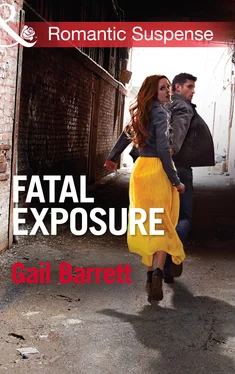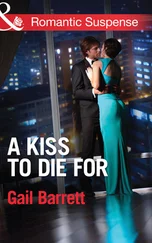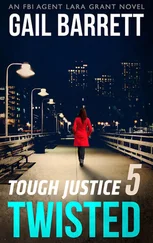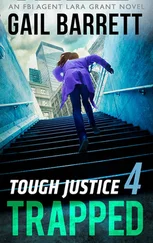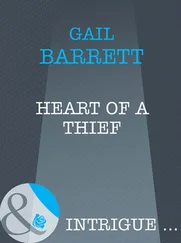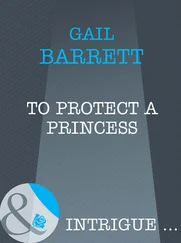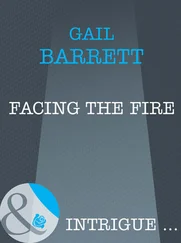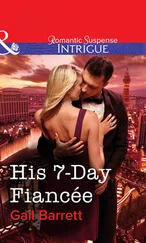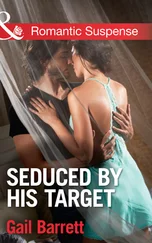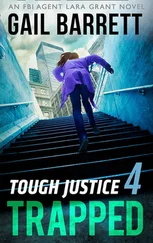But what could she do to stop them? If she spoke out, if she broke her vow of silence and revealed the truth, she would jeopardize Haley and Nadine.
They were in danger either way.
She lurched to a stop at a lamppost, leaning against it as she caught her breath. What about Parker McCall? Was there any chance she could trust him?
Her nerves coiled tight at the thought. She’d be crazy to trust him. The police always banded together. He’d take her stepfather’s word over hers.
Wouldn’t he?
She started jogging again, slower this time, thinking back to Parker’s face—his hot black eyes, the harsh angles of his square-cut jaw, that unbridled masculinity that seeped from every pore. The man was dangerous, all right, disrupting her equilibrium in ways she absolutely couldn’t afford. And he clearly wouldn’t give up. She hadn’t missed the resolve in those lethal eyes.
But behind that determination she’d caught a glimpse of something deeper, darker. Pain. He’d cared about his brother. Really cared. And that gave her a glimmer of hope. If she could control the information he gleaned, if she could keep him from unearthing too much too fast, maybe, just maybe, she could use him to her own end.
And maybe she was insane. Trying to control Parker McCall would be like riding one of those sixty-foot waves she’d seen in Hawaii one year. If she made a mistake, if she had one second of inattention, he’d crush her alive.
But did she have a choice?
Spotting a convenience store with a pay phone, she stopped. For several long moments, she debated what to do, combing through her options again. But one thing was crystal clear. She could no longer run. Joan’s attack had guaranteed that. She had to protect the people around her.
And Parker was her only hope.
Her belly tensing, she checked her watch. Less than two hours had passed since he’d left her house. She doubted he’d be asleep.
She was right. Two short rings later, his deep voice rasped into her ear. “Parker McCall.”
She inhaled to steady her nerves. “It’s me. Brynn Elliot. If you still want information about your brother, I’m willing to make a deal.”
Silence crackled across the line. “What kind of deal?” he finally asked.
“I’ll tell you in person.”
“When?”
“Tomorrow at noon.” She named a coffee shop on Wisconsin Avenue in Georgetown. “And Parker...”
“Yeah?”
“Come alone or the deal’s off.” Not waiting for an answer, she hung up. Then she leaned back against the glass and hugged her arms, feeling as if she’d just stepped onto a high wire over Niagara Falls. She’d taken the plunge—but she had to watch her step. She had to keep her head, stay in control and somehow manage Parker McCall.
Before the killers destroyed them all.
* * *
Parker drummed his fingers on the round metal table inside the coffee shop the following afternoon, convinced that he’d lost his mind. He’d spent years obeying the rules, trying to live down his father’s legacy and prove he wasn’t corrupt. And now he was risking everything to meet with a possible suspect in his brother’s death—his reputation, his integrity, his job.
And for what? He already knew that he couldn’t trust her. She’d lied about knowing his brother. She’d fled the scene of his murder, evading the authorities for years. Even now she was trying to conceal her identity, eschewing money and fame to escape scrutiny, a sure sign she had something to hide.
And those bizarrely cryptic comments she’d made...What “trouble” was he stirring up? Which “people” was he going to hurt? Nothing but vague innuendos designed to paint her as the victim and throw his investigation off course.
He gulped down the last swallow of his espresso and checked his watch, then let out a huff of disgust. Insane is right. He’d risked everything he believed in to meet her here, and she would probably stand him up. If he had any sense he’d walk out now, turn the case over to his supervisor like he was supposed to and let him investigate Tommy’s death.
But then the door swung open and she strolled inside—her pale cheeks flushed, a black watch cap pulled low over her head, exposing the flame-colored ends of her hair. She still wore the same black peacoat and jeans and had that pack slung over her back. Her gaze collided with his, and she paused.
And damned if another shock of awareness didn’t sizzle through him, like a lightning strike to the gut. His heart began to thud, a predatory kind of alertness pinning him in place. And judging by her startled expression, she felt it, too—this crazy, magnetic pull.
Disgusted at his reaction, he scowled back. Appealing or not, B. K. Elliot was a suspect—one he wouldn’t underestimate again.
Her flush climbing higher, she gave him a cautious nod, then wove through the half-empty restaurant, heading his way. But as she neared, he picked up on subtle details—the slight crease puckering her brow, the grooves bracketing her lush mouth, the nervous way she kept scanning the restaurant like a criminal on the lookout for cops.
Even more on guard now, he watched as she took her seat. “You want something to drink?” he asked.
“No, thanks. I’m good.” She pulled off her cap and shook out her tousled hair, the deep hues catching the light. Then she glanced around the room again.
“Something wrong?”
“What? No.” Her gaze danced back to his.
She’s lying. The woman looked spooked as hell. “Something’s bothering you.”
“I just thought... You came alone like I told you, right?”
“I said I would.”
“And you didn’t tell anyone you were coming here?”
He cocked his head. “You accusing me of something?”
“No, I...I just needed to be sure.”
He worked his jaw, a spurt of annoyance hardening his voice. “I don’t lie, and I don’t go back on my word. I said I’d come alone, and I did. Now if you’ve got a problem with that, I need to know because I didn’t come here to play games.”
Hesitating again, she searched his eyes. “I thought someone followed me here. I guess I was wrong.”
Not quite willing to believe her, he crossed his arms. “So what’s this about a deal?”
She lifted her backpack onto her lap, pulled out a five-by-seven black-and-white photo and placed it on the table, facing him. “This girl. Do you know who she is?”
He dropped his gaze to the photograph. The girl was young, barely pubescent, with long blond braids and troubled eyes. He frowned, trying to place her, certain he’d seen her before. And then the memory broke loose. “You had a photo of her on your wall.” She’d been part of the homeless group.
“But you don’t know who she is?”
“Should I?”
Her eyes studied his again. She gave him a nod, as if he’d confirmed something she already suspected, and put the photo away. “Her name was Erin Walker. She was a runaway. I met her on the streets a while back.”
“Pretty young for a runaway.”
“Some kids grow up fast.”
He couldn’t argue that. “Go on.”
“The police picked her up and took her home. Her parents have money, so they sent her to High Rock Camp. It’s a place in western Maryland for at-risk youth, one of those wilderness therapy camps where they do survival things.”
“I know it.” In fact, his boss, Colonel Hugh Hoffman—the head of Baltimore’s Criminal Investigation Division—had founded the camp. And it was a great success, generating so much positive publicity it had spawned imitations in other states. It had even impressed Senator Alfred Riggs, who’d taken the Colonel under his wing, fast-tracking his political career.
“Erin died there,” Brynn continued. “Supposedly she committed suicide.”
Читать дальше
